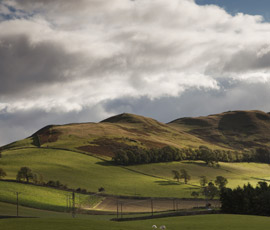Survey reveals Scottish farming’s 2013 challenges

Confidence in Scottish agriculture remains high, despite falling profitability, harsh weather and poor lamb prices.
According to the Bank of Scotland’s annual agricultural report, only 11% of 474 respondents said they thought the industry was prosperous in 2012 – a drop of eight percentage points compared to the previous year.
Although only 59% expected to be profitable this year, 28% of farmers were optimistic about the future of the industry; the second highest level since the survey began 17 years ago.
“Last year’s weather ensured the recession affecting most of Scotland’s economy finally caught up with farming,” said Donald MacRae, chief economist at Bank of Scotland.
Bank of Scotland report – key findings
- 85% of farmers were profitable in the last financial year – two percentage points lower than previous year
- Only 59% expected to be profitable in 2013
- Arable producers reported steepest drop in profitability, from 92% profitable in 2011, to 84% last year – just 69% expected to be profitable in 2013
- Hill farmers were least profitable, with 72% profitable last year and only 41% expecting to make a profit in 2013
- Dairy – just 48% of producers anticipate a profitable year compared to 87% making a profit last year
- Almost a third (32%) of dairy farmers intended to expand, by an average of 22% this year, continuing the trend for fewer, larger dairy herds
European subsidies remained crucial for the profitability of some Scottish farming sectors, with only 7% of hill farmers managing to make a profit without them, said the report. Overall, just 36% of respondents said they would be profitable without the single payment.
The report highlighted a likely drop in beef production this year, with 9% of farmers planning to reduce cattle numbers by an average of 58%, compared to 16% of respondents expecting to expand by 25%.
However, there were signs of optimism, with 45% of farmers investing in plant and equipment in 2012. Most farmers expected commodity prices to rise this year, with the exception of lamb and beef, and interest in renewable energy continued to grow.
“Bad weather might be challenging for farmers but it does reinforce the world’s increasing demand for food. As a result, the long term prospects for Scotland’s oldest industry must surely remain bright,” said Mr MacRae.
Keep up with the NFUS AGM
